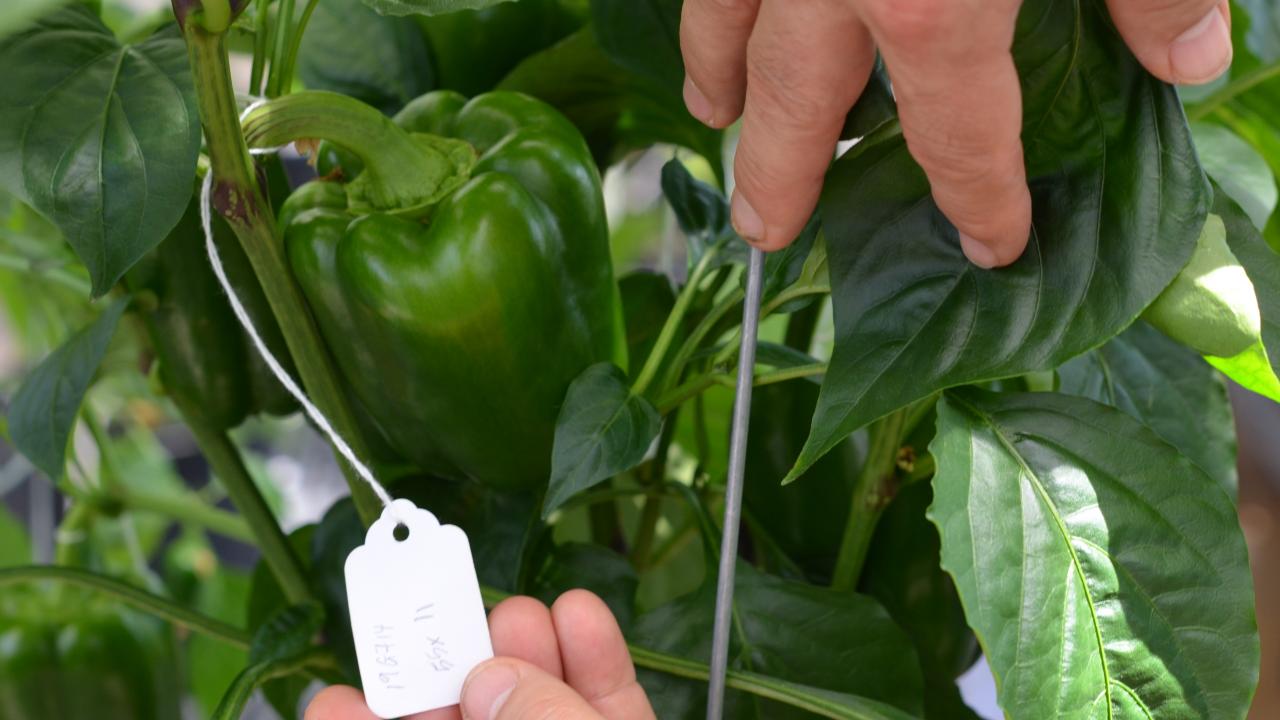
UC Davis STAIR Grant Awards Over $400,000 to Advance Innovations Towards Commercialization
DAVIS, Calif. — Innovators at the University of California, Davis, are receiving financial support to advance their research and technologies toward commercialization.
The Science Translation and Innovative Research (STAIR™) Grant program, managed by Venture Catalyst and funded by the UC Davis Office of Research, provides funding to support translational science and innovative research performed by UC Davis researchers. The goal of the program is to demonstrate early proof-of-concept and commercial potential or feasibility for technologies being developed with the intent of commercial translation.
This year’s award recipients include campus investigators developing technologies that could have a significant impact on pressing human and animal health issues as well as creating efficiencies to nourish and feed the world.
“It is exciting to see how the award recipients are addressing a wide range of unmet challenges in nutrition and health,” said Prasant Mohapatra, vice chancellor for research at UC Davis. “With the STAIR Grant program, we are able to support the creativity and ingenuity of our researchers in these programs to translate their innovations into commercial applications that help bolster our economy and improve quality of life.”
2018–19 STAIR Grant Recipients

Peter Havel, professor, Department of Nutrition and Molecular Biosciences
Validation and Development of Natural Products as Triglyceride Lowering and Cardiovascular Protective Therapeutics
The protective effects of Mediterranean and Nordic diets against cardiovascular disease are well known, with many attributing the health effects to omega-3 fatty acids. Havel and his team will build on promising preliminary results from a pilot study demonstrating triglyceride-lowering effects of novel products found in natural sources such as plants and animals. The project will expand on this research to validate the impact of a lead compound and/or compounds on circulating lipids/lipoproteins and other related metabolic biomarkers. Additional financial support for this proposal is being provided by the dean of the UC Davis School of Veterinary Medicine.
Stuart Meyers, professor, Department of Department of Anatomy, Physiology and Cell Biology
A Novel Method to Improve Salmonid Aquaculture

There is increasing pressure on aquaculture companies to simultaneously increase productivity while also becoming more ecologically and financially sustainable. Many fish species are hard to spawn and it can be difficult to maintain genetic diversity and disease resistance in hatchery-produced fish.Meyers and his team are developing an innovative reproductive biotechnology tool for salmonid aquaculture to increase spawning efficiency and genetic diversity while eliminating the need for exogenous hormones. The STAIR Grant will enable the team to test the ability of the reproductive tool to create commercially sustainable single-sex populations of fish with a large number of different genetic lines. Additional financial support for this proposal is being provided by the dean of the UC Davis School of Veterinary Medicine.
Alyssa Panitch, Edward Teller Professor, Department of Biomedical Engineering, and executive associate dean, College of Engineering
Therapeutic Development to Improve Outcomes Following Myocardial Infarction

Methods of revascularization and the restoration of blood flow to the heart after a blockage have increased survival rates, but have also led to downstream issues of ischemia-reperfusion injury when blood flow returns to the tissue. Panitch and her team have developed a drug candidate with potentially protective effects for cardiac tissue that could improve morbidity and mortality following acute coronary syndromes. The team plans to do in vivo studies using mouse models to validate this treatment approach. Additional financial support for this proposal is being provided by the dean of the UC Davis College of Engineering.
Jamie Peyton, chief of service, Veterinary Medical Teaching Hospital
Novel Fish Skin Bandages for Treatment of Partial and Full Thickness Wounds

There is an immediate need for the development of affordable, easily accessible and low-risk dermal substitutes for humans and animals. Peyton and her team have developed a tilapia skin xenograft for use in burn patients to alleviate pain and encourage rapid healing. Based on preliminary data obtained from veterinary patients with severe burns, the team’s novel approach holds great promise for application, safety and efficacy as a product with broader applicability. Through the support of the STAIR Grant, the team plans to further validate and optimize their technology and methods. Additional financial support for this proposal is being provided by the UC Davis Innovation Institute for Food and Health.
Venkatesan Sundaresan, professor, Department of Plant Biology
Developing Clonal Hybrid Seeds in Maize

Hybrid plants exhibit significantly higher yields compared to inbred varieties, an effect called “hybrid vigor.” However, hybrids cannot be propagated sexually, and have to be generated annually by cross-pollination, which requires significant labor inputs and expense. Sundaresan and his team have developed a technology to make a hybrid plant that self-reproduces through seeds while maintaining its hybrid genetic constitution. They have demonstrated the technology in rice and through the STAIR Grant project will work to adapt the technology for maize. Additional support for this proposal is being provided by the dean of the College of Biological Sciences.
Allen Van Deynze, director of research at the Seed Biotechnology Center and associate director of the Plant Breeding Center, Department of Plant Sciences
Enabling Mechanical Harvesting of Peppers

The majority of peppers are hand-picked, which is associated with a substantial labor cost. Van Deynze and his team have developed peppers that can be easy-decapped and picked without the stem. They have developed destemming traits in peppers currently not deployed commercially that enable mechanical harvesting. With the STAIR Grant, the team plans to functionally verify the DNA markers they have identified and refine markers for the genes that control destemming to create mechanically harvestable peppers.
Program Offers Support to Campus Innovators
This year, through the STAIR Grant program, the six recipients were awarded a total of $409,000 for the fiscal year 2018–19: $259,000 from UC Davis Office of Research as well as additionalfinancial support from the School of Veterinary Medicine, College of Biological Sciences, College of Engineering and Innovation Institute for Food and Health. In addition, TechAccel, Elanco Animal Health and Leo Pharma partnered with Venture Catalyst in the 2018–19 program, evaluating proposals for potential sponsorship.
“The STAIR Grant program is a key pillar in the suite of resources offered by Venture Catalyst to stimulate translational research and generate early proof-of-concept for university technologies,” said Dushyant Pathak, associate vice chancellor for research and executive director of Venture Catalyst at UC Davis. “The supplementary funding from campus-wide leadership provides further evidence of UC Davis’ commitment to fostering an environment of innovation and technology commercialization.”
The STAIR Grant program is in its sixth year. With the funding in this cycle, the program has awarded over $1.6 million to 30 recipients. STAIR Grants have enabled the creation of 11 UC Davis–associated startups: Astrid Pharma, Buto Biopharma, Cognivive, Delix Therapeutics, MUSE Microscopy, Oomni, Paramag Theranostics, Seven Biosciences, Sierra Biopharma, Somos Therapeutics and VenoSense. In addition to enabling the foundation for startups, a total of 5 intellectual property agreements have been executed — including two inter-institutional agreements and three corporate licenses. STAIR Grant recipients have also raised $700,000 in external funding.
In addition to financial support, each recipient of a STAIR Grant is assigned at least one experienced business mentor to review project milestones, offer technical guidance, provide business advice and facilitate networking opportunities and connections to industry. Additionally, through a collaboration between Venture Catalyst and the UC Davis Mike and Renee Child Institute for Innovation and Entrepreneurship, STAIR Grant teams participate in Entrepreneurship Academies to provide them with focused business and commercialization guidance as well as entrepreneurial skills development.
Future Awards
The application process for the 2019–20 STAIR Grant begins in late January 2020 and is open to anyone with principal investigator status at UC Davis. Questions may be directed to stairgrant@ucdavis.edu.
Media Contact
AJ Cheline, Office of Research, (530) 752-1101, acheline@ucdavis.edu
Resources
Venture Catalyst
STAIR™ Grant Program
DIAL™ Grant Program
STAIR Grant Program: Previous Awardees
STAIR™ is a trademark of The Regents of the University of California.